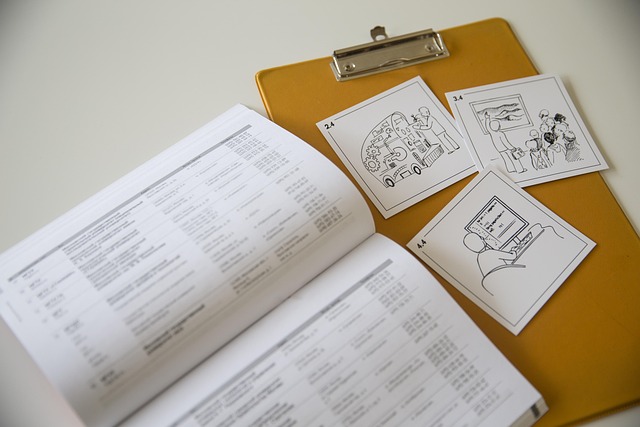Couples counseling leverages family systems theory to understand interdependent dynamics influencing relationships. It teaches communication strategies, conflict resolution, trust rebuilding, and affection nurturing for healthier bonds. Co-parenting guidance during transitions ensures children's well-being. Through active listening, empathy, and shared decision-making, couples gain tools to strengthen connections and manage challenges collaboratively.
Family dynamics are the intricate web of relationships within a home, shaping every interaction. Marriage therapy, or couples counseling, offers a safe space to navigate these complexities. This article explores essential aspects of family dynamics and provides practical strategies for couples seeking improvement. From understanding communication barriers and resolving conflicts to rebuilding trust and strengthening connections, each section delves into techniques proven effective in fostering healthier relationships.
Understanding Family Dynamics: The Foundation of Therapy

Understanding family dynamics is the foundation upon which effective marriage therapy is built. Family systems theory posits that each family member influences and is influenced by others within the unit, creating interconnected patterns of communication, roles, and expectations. These dynamics can both support or challenge a couple’s relationship, often presenting complex issues that require professional guidance.
Couples counseling, grounded in this understanding, seeks to help partners recognize these underlying patterns, identify unhealthy interactions, and develop healthier ways of communicating and resolving conflicts. By exploring the unique dynamics within their family system, couples can gain valuable insights into their relationship challenges and work collaboratively towards building a stronger, more fulfilling partnership.
Communication Barriers in Couples: Overcoming Silences

Effective communication is a cornerstone of healthy relationships, but many couples struggle with barriers that create silences in their conversations. These obstacles can range from defensive attitudes and fear of conflict to unmet emotional needs and misunderstandings. In couples counseling, addressing these communication barriers is a key step towards reconciliation.
Therapists skilled in marital therapy help partners recognize and overcome these silences by fostering an environment where each individual feels heard and respected. Through techniques like active listening, couples learn to express their feelings and perspectives openly, challenge negative patterns, and develop new strategies for constructive dialogue. This process not only strengthens communication but also deepens emotional intimacy, laying the groundwork for a stronger, more fulfilling relationship.
Reconciling Conflict: Strategies for Healthy Disagreements

In any relationship, conflict is inevitable. However, it’s how couples navigate these disagreements that determines the health of their dynamic. Couples counseling provides a safe space for spouses to learn constructive ways of reconciling conflicts, fostering better communication and understanding. Through active listening, empathy, and the use of “I” statements, partners can express their feelings without placing blame, paving the way for healthier debates.
Effective conflict resolution involves setting boundaries, agreeing on ground rules for discussions, and committing to finding mutually beneficial solutions. With guidance from a trained therapist, couples can transform negative interactions into opportunities for growth, strengthening their bond and deepening their connection. This process equips them with valuable tools to manage future disagreements, ensuring their relationship remains resilient in the face of challenges.
Rebuilding Trust: Techniques for Broken Bonds

Rebuilding trust is a vital component of mending broken family dynamics, especially in marriage therapy. When bonds between partners have been shattered, regaining faith and security becomes essential for moving forward. Couples counseling offers a safe space to address these issues. Through open communication, therapists can guide individuals towards understanding the root causes of distrust, whether stemming from infidelity, constant arguing, or past hurts.
Effective techniques include active listening, where each partner expresses their feelings and fears without interruption, fostering empathy and reassurance. Additionally, setting clear boundaries and consistently following through with them helps rebuild security. The therapist may also encourage small, manageable steps towards rebuilding trust, such as sharing daily activities or making joint decisions, gradually increasing the complexity as the couple demonstrates reliability and respect.
Strengthening Connection: Nurturing Intimacy and Affection

In the realm of family dynamics and marriage therapy, strengthening connection through nurturing intimacy and affection is a cornerstone of successful couples counseling. This involves creating safe spaces where both partners feel seen, heard, and valued. Through open communication and empathetic listening, therapists can help couples rediscover the emotional bonds that often fade over time. Simple gestures of affection, such as holding hands, hugging, or expressing gratitude, can reignite the spark and foster a deeper sense of connection.
Effective therapy sessions encourage partners to explore their individual needs for intimacy, whether it’s physical, emotional, or intellectual. By understanding these nuances, couples can learn to meet each other’s needs more effectively, enhancing their overall relationship satisfaction. This process not only strengthens the couple’s bond but also equips them with the tools to navigate future challenges together, creating a more harmonious and fulfilling marital journey.
Co-parenting Strategies: Navigating Family Transitions Together

Co-parenting, a crucial aspect of family dynamics, becomes even more critical during transitions and challenges. When parents separate or go through marriage therapy, it’s essential for them to adopt effective co-parenting strategies to ensure their children’s well-being. This involves open communication, shared decision-making, and maintaining consistent routines.
Couples counseling plays a vital role in teaching parents how to navigate these transitions together. Therapists can help parents understand each other’s perspectives, resolve conflicts respectfully, and create a stable environment for their kids. By fostering a cooperative rather than competitive co-parenting relationship, families can minimize the negative impact of changes and strengthen their connections during this transformative period.
